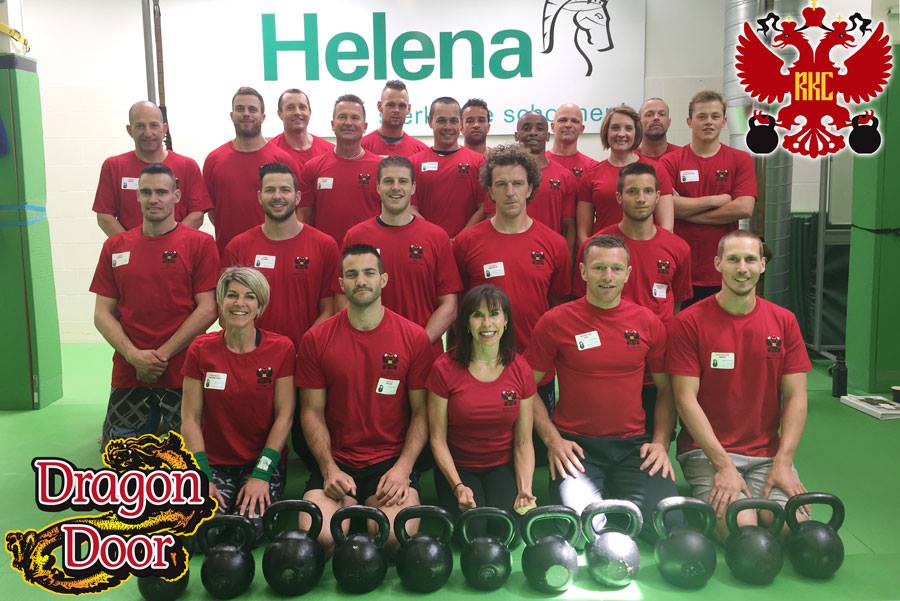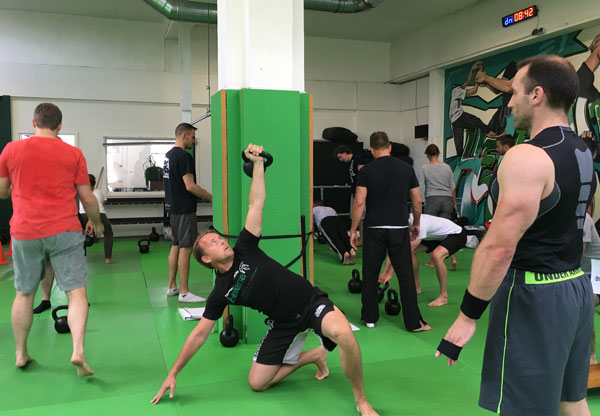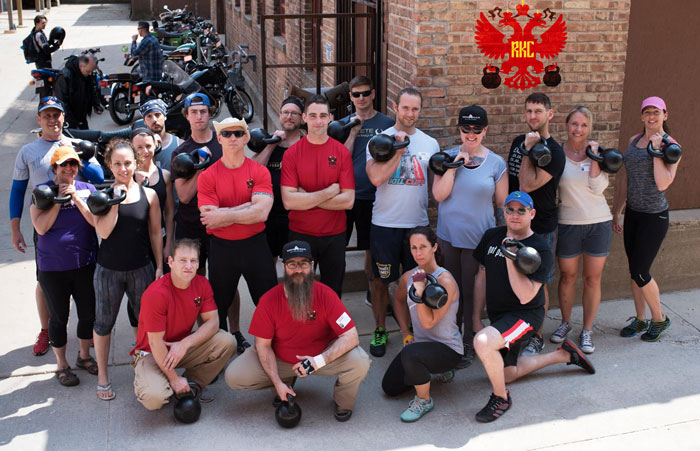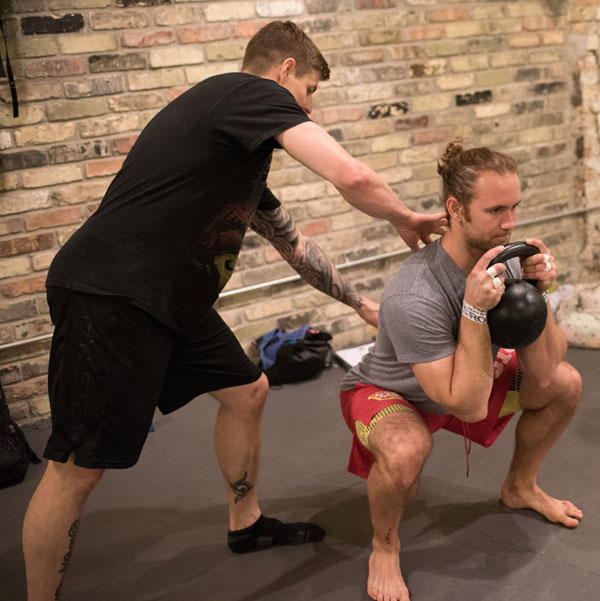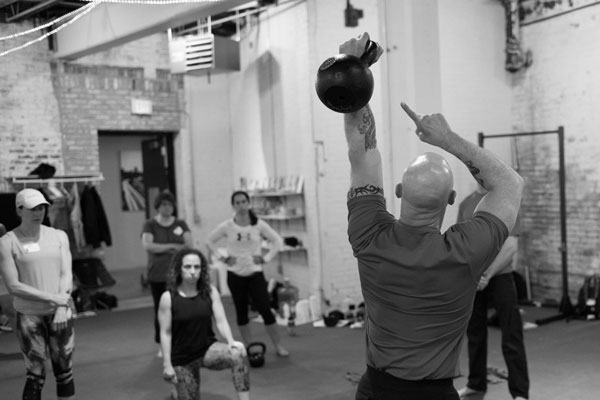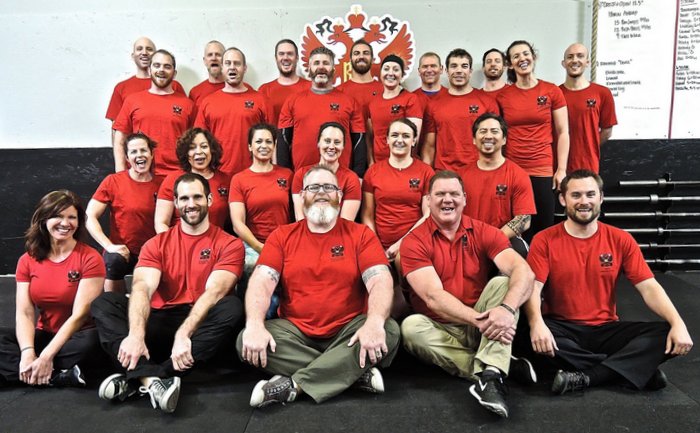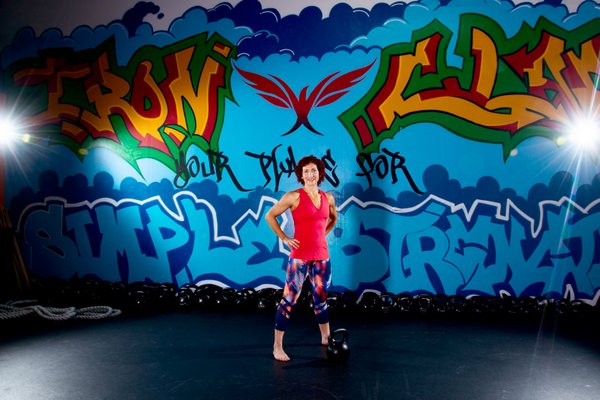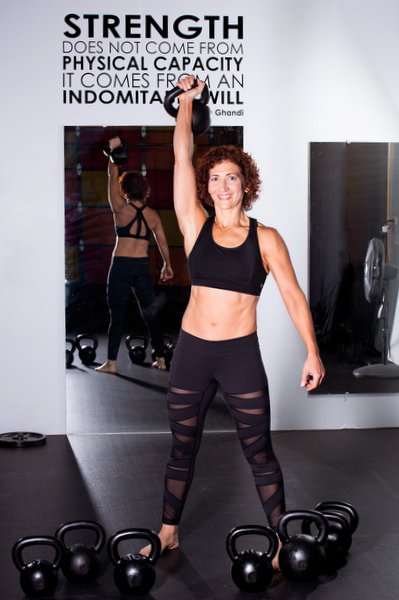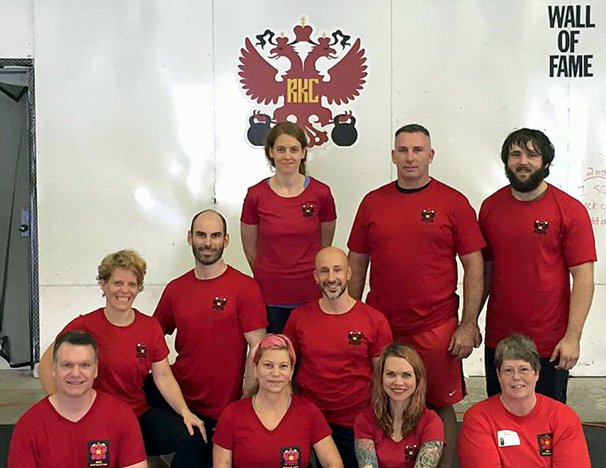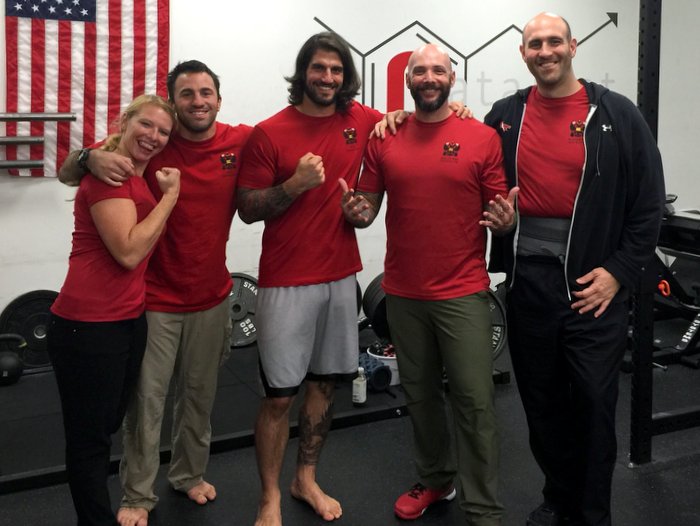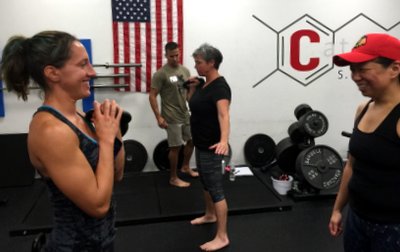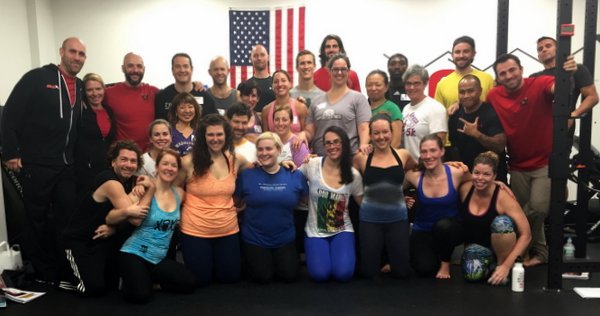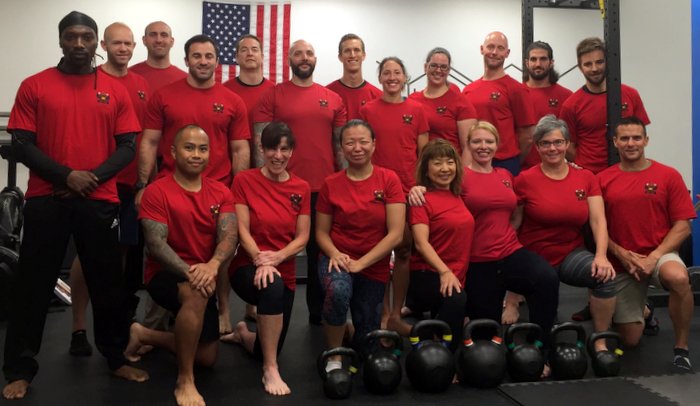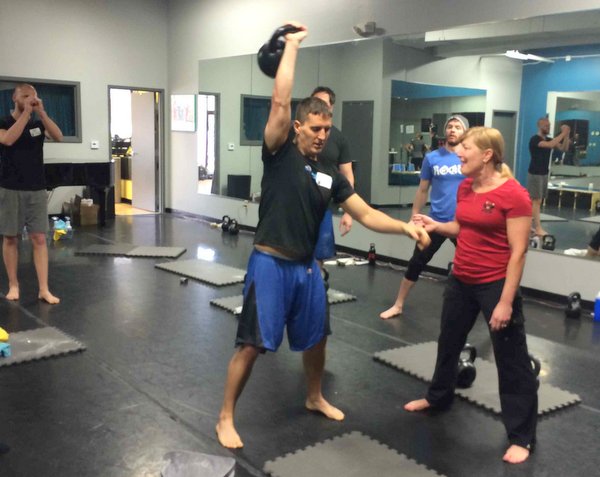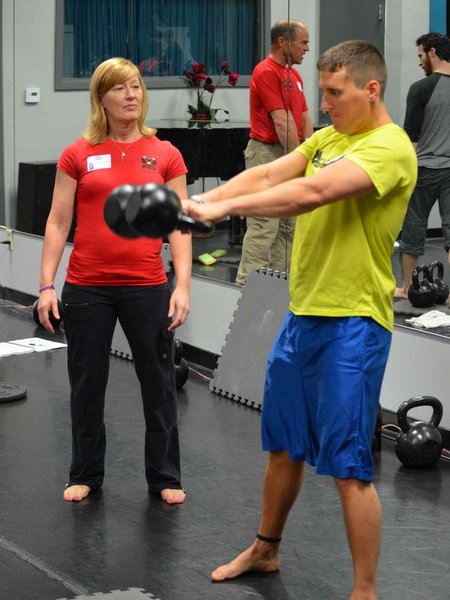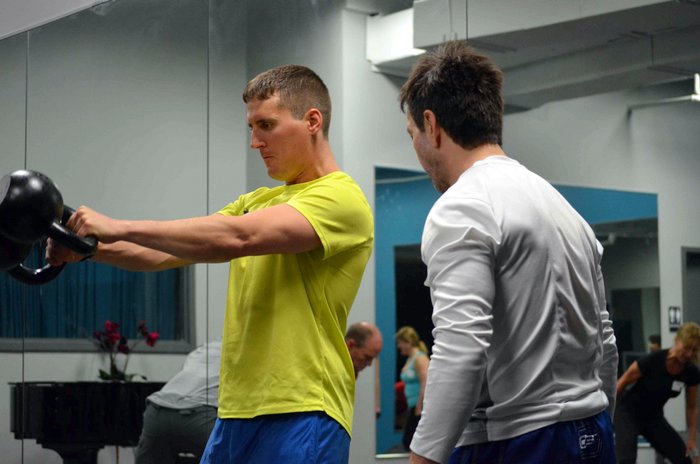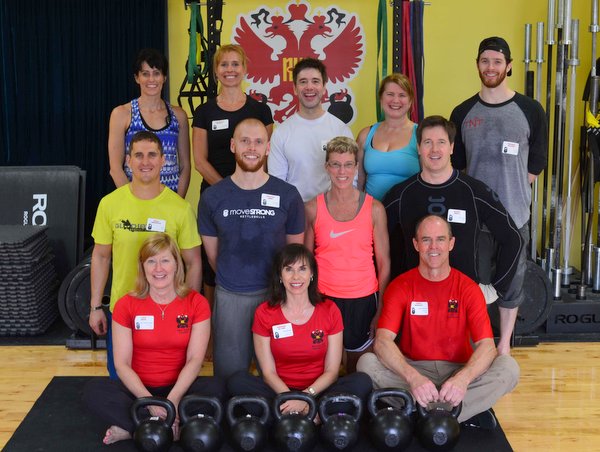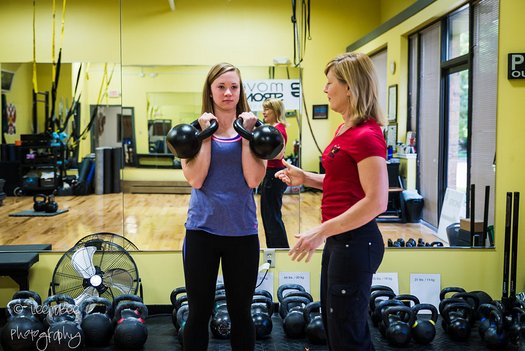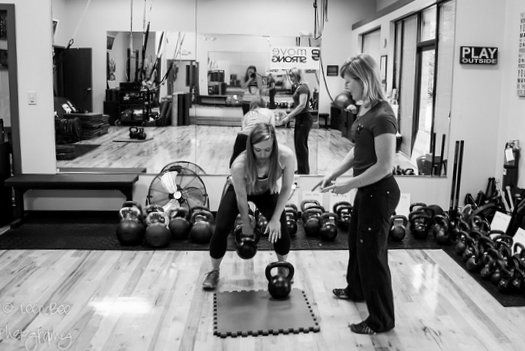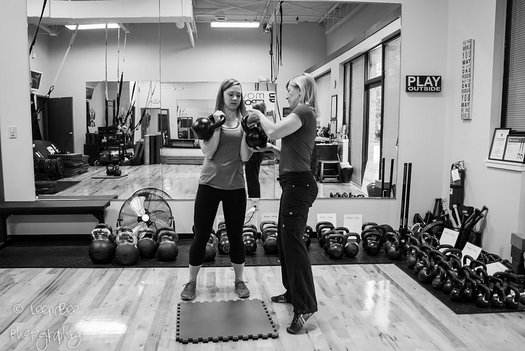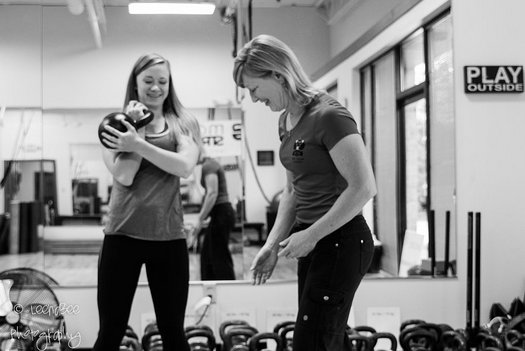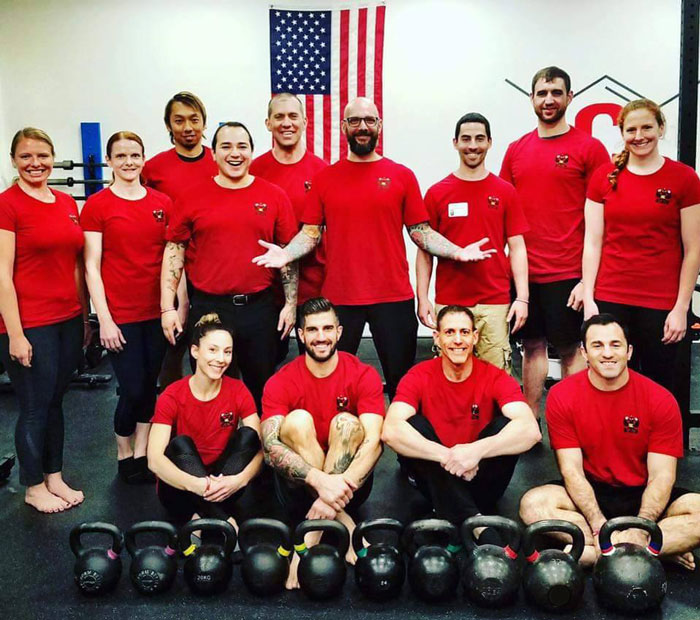
I recently assisted at an RKC Level Two certification in New York at Catalyst Sport with Master RKC Steve “Coach Fury” Holiner. This was a unique event—of the ten candidates in attendance, Steve knew all but three of them. Seven had attended the previous RKC with Steve or had worked with him in the past. In a matter of minutes, Steve approached these three new faces and made them feel as welcome as if they were long lost friends. I love and admire the sense of community and belonging in the RKC.
The workshops offer more than just a learning experience for candidates wishing to understand how to coach and teach kettlebells, everyone also has the opportunity to learn from other coaches. The RKC is a great way to grow your network and learn from other professionals in the field. Each time I have either assisted or attended an RKC workshop, I have always been able to learn something useful from someone else in attendance. I’ve learned new drills to help correct common flaws, or a different cue to coach an exercise. Everyone will have a different perspective on teaching, even if the end result is the same. Learning from each other is very beneficial because it gives you more tools to add into your coaching tool box.
Along with the coaching aspects of the weekend, strong relationships develop between all the candidates and instructors. The instructors and assistants are at your side throughout the weekend to help better yourself. We are never intentionally trying to fail you, we want to make sure we are delivering the best possible education. We want to help you become the best teacher you can be, so you can better serve your clients. I am always amazed at how willing the instructors at RKC certifications are in giving candidates opportunities to ask—and answer—any questions they may have about coaching, programming, client interactions, business and more.
The RKC is a mentally and physically challenging weekend, but what stands out is how supportive everyone is of each other. During the snatch test you will be encouraged by your colleagues, because they want you to succeed. Then, during the coaching drills, you will interact and help each other learn, which is great since backgrounds range from coaching, training, physical therapy, chiropractic, and sometimes even psychology. Regardless of these different backgrounds, the setting allows you all to interact as equals—we are all here to learn and become better. This is an environment of great knowledge and solid support. This is what we should bring back with us when the weekend is over.
When I went through my first RKC in 2014, I specifically remember going through the graduation workout and hearing one of the candidates I had worked with that weekend yell out “Keep it up guys, you can do this, we are in this together!” (Cue High School Musical soundtrack). Those words have stuck in my head since that day. That challenging rite of passage was tough, but knowing that everyone else was experiencing it too encouraged me to succeed. Even before the grad workout, hearing the encouragement from my peers during my testing was comforting. If I hadn’t passed that weekend, I would have been completely okay with it because I would have still left with a lot of knowledge and many new friends.
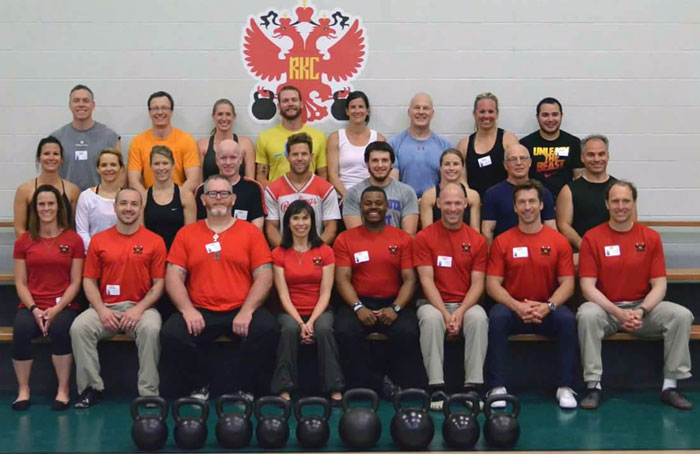
Many people still think that the RKC has a military style of training, but we have separated ourselves from that image and now have a greater emphasis on education and practical purpose. Our focus is to educate and help people. Instructors and assistants will not be impressed by a 3:30 snatch test or a 44kg kettlebell press, but they will be impressed by how well you demonstrate an exercise and how well you can coach. The other feats are impressive, but they do not show us how well you can teach.
There is a greater sense of belonging when you treat the candidates as family, just like Steve did with the candidates he didn’t already know. Most new candidates come in with big knots of fear in their stomachs because of the testing. But when the instructors take the time to get to know the candidates while being sure to teach in the areas where they need help, the stress of testing lowers automatically. When you find a community that welcomes you with open arms and a willingness to give you everything in their power to help you succeed, you know that you are in the right place. We want to set up all of our candidates for success, so we take the extra time to review techniques or drills so everyone fully understands.
The RKC community has some of the nicest, most helpful people I have ever had the pleasure of meeting. When I started the process of opening my facility, Restored Strength, I reached to some RKCs who own their own businesses, and they were willing to take the time to answer my emails and phone calls. Some of these people I have only met on social media, but I also knew them as a part of the RKC community. Without hesitation, everyone I reached out to responded to my questions, and shared what had and had not worked for them when opening their facilities. Where else can you speak to nationally known coaches and get advice like this?
When I assisted at the RKC-II Steve taught, he offered to host me at his place for the weekend. We’ve known each for a few months because he has been coaching me online. He invited me to assist him and offered to let me stay with him. This is the type of community that’s a family with the same goal in mind: helping others. It really connected with me when he said, “It’s amazing how many people I get to reach. If I work with ten coaches and they each work with thirty people that means I have connected with 300 people in some way”. The power to teach and influence this many people is tremendous.
Becoming an RKC is more than just earning a certification, it’s about becoming part of a family with a common goal in mind: educating the world with proper kettlebell training. We spend hours with strangers who become friends with the shared experience of becoming educators in strength. You are never alone while earning your certification, you have the support of a strong community which wants you to succeed more than you know. We all return from these weekends with many memories and stories to share. Each time I have had the privilege to assist, I end up with more friends to add to this extended family.
****
William Sturgeon, RKC II trains clients at his gym, Restored Strength. Contact him through his website at RestoredStrength.com or follow him on Facebook: facebook.com/restoredstrength
